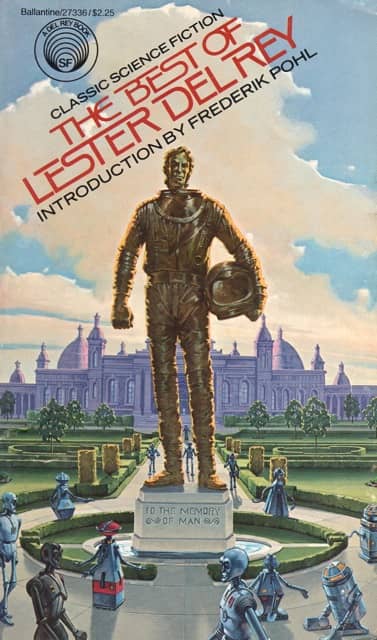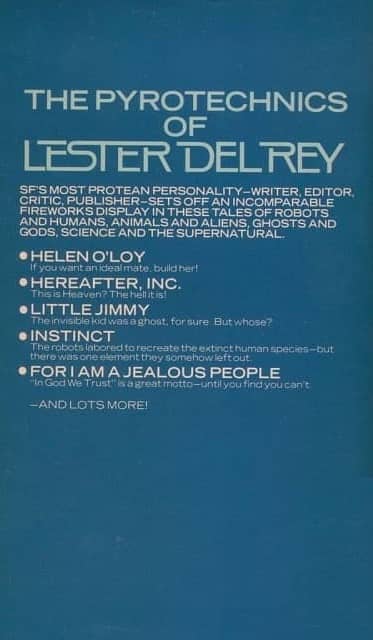Gods, Robots, and Man: The Best of Lester del Rey
 |
 |
Lester del Rey was born in Minnesota in 1915 and died in 1993. One of his boldest fictions was claiming that his full name was Ramón Felipe San Juan Mario Silvio Enrico Smith Heathcourt-Brace Sierra y Alvarez-del Rey y de los Verdes, when it was actually Leonard Knapp. However, it was his other fictions, beginning in 1938 for Astounding, and his work as an editor, a reviewer, and in a literary agency, which resulted in his being made a Grand Master by the Science Fiction Writers of America in 1991.
While he was active in science fiction until near his death, he never collected anything published after 1964 and published very little of his own fiction at all after 1971, the year he married Judy-Lynn Benjamin. She became an editor at Ballantine Books, later joined by him, and created the Del Rey imprint. In the meantime, it was this publishing house which began the Classics of Science Fiction (“Best of”) series, the eighteenth of which was devoted to Lester del Rey, himself.
In his afterword del Rey says, “I love robots,” and that comes through in the number of stories in The Best of Lester del Rey that feature them. The most famous is “Helen O’Loy,” which was selected for the SFWA’s “Science Fiction Hall of Fame.” In it, Dave is a robot repairman, Phil is an endocrinologist, and Lena is a robot who develops a glitch and is worked on until the two friends decide to equip a new model with emotions. When Phil is called away on business and Helen imprints on some fiction and on Dave, the situation becomes complicated. The quiet twist at the end adds a deep layer of pathos which is a feature of many of del Rey’s stories. This might be read today as a sexist tale about gender, and some casual attitudes expressed in it could be seized on as confirmation, but it’s really a story about the nature of humanity, our emotions, how they might be emulated, and how humans might respond to the “spiritual” (or differently mechanical) despite biology. Published before Heinlein and technically “before the Golden Age,” it is nevertheless written in a direct style which efficiently backgrounds numerous then-futuristic elements to flesh out its foreground, and is effective.